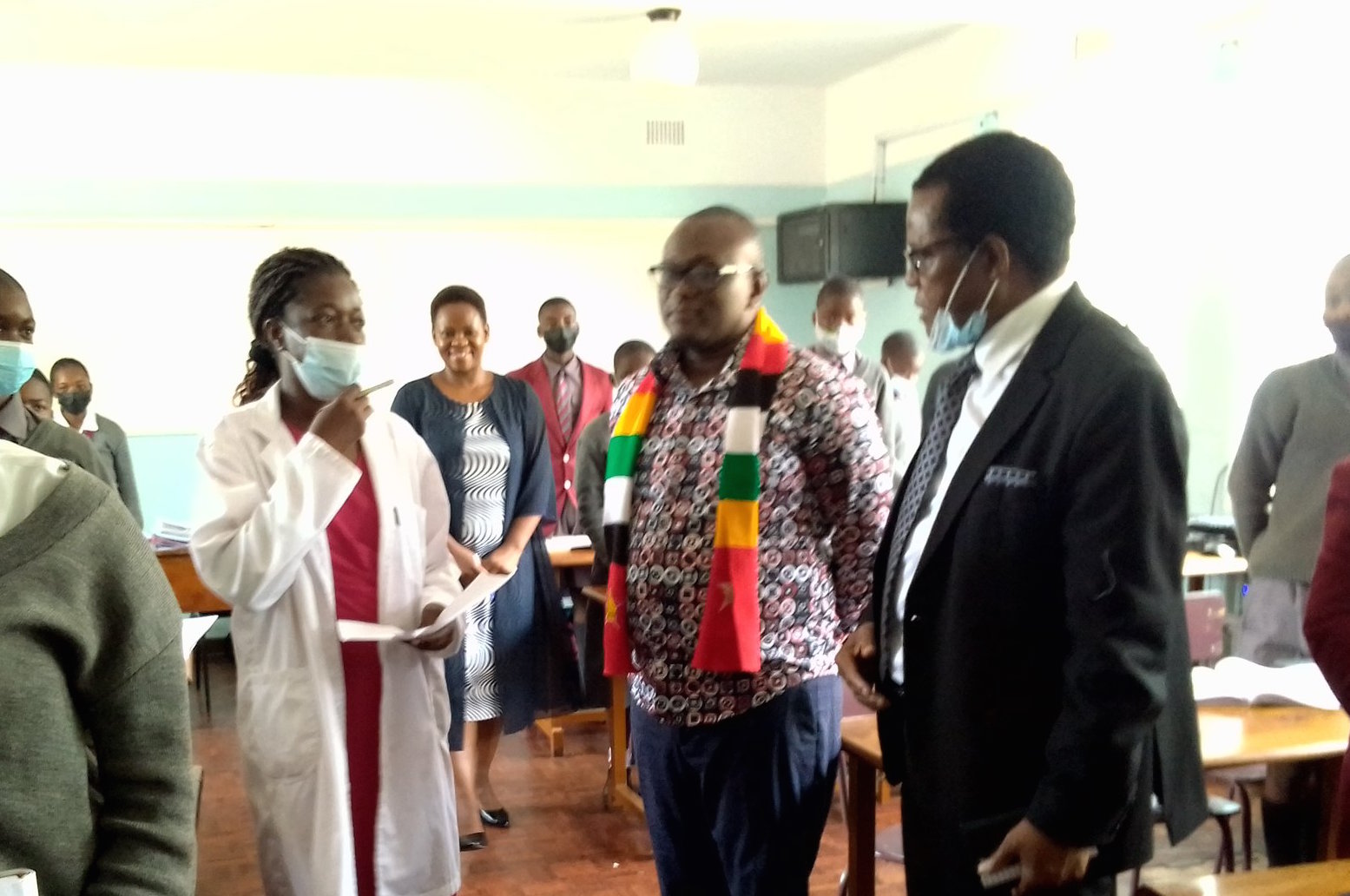|
Getting your Trinity Audio player ready…
|
In the quest to provide an enabling environment for the growth of the ICTs sector, the government has deployed computer laboratories for schools in the Bulawayo Metropolitan Province.
This came to the fore when Dr. Jenfan Muswere, the Minister of ICT, Postal and Courier Services presided over the official launch of Schools’ ICT labs in Bulawayo Province today.
Baines Junior, Cowdray Park Primary, Emganwini High, Hamilton High, Imbizo Garrison Primary, Induba Government Primary, Induna High, Ingwegwe Primary, Inyanda High, Lobengula Primary, Mbizo Government Primary, Mncumbatha Secondary, Mpumelelo Government Primary, Mtshede Government Primary, Ngwenyama Government Primary, Nketa Adult Library, Nkulumane High, Pumula South Secondary, Queen Elizabeth II Primary, St Peter’s, Trenance Primary, and Woodville Primary schools ICT labs were commissioned today in Bulawayo Metropolitan Province.
“It is now critical to bridge the digital divide for the 2.9 billion people who remain offline worldwide, more so the millions not connected in our beloved nation of Zimbabwe. Indeed, the call for universal access has never been more profoundly sensed than during the trying times we found ourselves in, due to the COVID-19 Pandemic.
“It is against this background that, as Government, we remain resolute in our quest to attain a digital economy and knowledge society, a society where all our citizens have access to ICTs, regardless of their geographical, social or economic status. To that end, we continue to provide an enabling environment for the growth of the ICTs sector, by deploying critical ICTs infrastructure like schools’ ICTs laboratories across Zimbabwe,” Hon Muswere said.
Access to ICTs and effective participation in the digital economy is critical in improving the quality of life for all the citizens of Zimbabwe thus the digital economy projects and initiatives, dovetail very well with the ICT Ministry’s vision which is anchored on leveraging ICTs for sustainable development.
Efficient and affordable ICT infrastructure and services allow citizens to participate in the global digital economy and increase their overall economic well-being, digital inclusion, poverty reduction and improved health care and education quality.
Digital technology facilitates the attainment of the aspirations of the National Development Strategy (NDS1), as enunciated by His Excellency, the President, Dr Emmerson Dambudzo Mnangagwa. On the other hand, the Digital Economy is stated as one of the fourteen national priorities underpinning this strategy for the period 2021 – 2025, as the country thrives to become an Upper-Middle Income society by 2030.
Dr. Muswere said the ICT Ministry will continue to play its critical role in this transformation agenda by ensuring the deployment of the ICTs infrastructure for all citizens, let alone our children.
Speaking on the same occaion, Dr. Gift Machengete, the Director-General of the Postal and Telecommunication Regulatory Authority (POTRAZ) said jobs of the future which would require extensive knowledge of ICTs and ICT applications, hence, through the ICT labs, the stakeholders are preparing young people to compete in the global village – a global village controlled by artificial intelligence, robotic, virtual reality, blockchain and big data, which, as our future leaders, they should be well versed with.
He reiterated President Mnangagwa’s recognition of the importance of the Internet and its transformative benefits to national development, hence Government’s focus on various ICT development initiatives meant at accelerating the country’s economic development.
“Government’s ICT development programs also stem from the realisation that effective participation in the digital economy is critical in improving the quality of life for all – those in cities and towns and those in rural areas alike.
“Last week, the Honourable Minister Commissioned twelve (12) School ICT Labs in Masvingo rural and Gutu Districts and today we are in an urban area – Bulawayo Metropolitan Province – commissioning a further twenty – two (22) schools computer labs, which is a demonstration that no one and no place shall be left behind as we revolutionise the country’s ICT landscape and take our position as a force to reckon with in the Fourth Industrial Revolution,” Dr. Machengete said.
A teacher from Hamilton High School who can not be named since he is not authorised to speak to the press said that it is encouraging to note that learners are now taking computer programming lessons, courtesy of computers donated by PRAZ.
He added that research has been made easier since people can now freely surf the Internet to research on a variety of topics on modern developments like the fourth industrial revolution, use of robotics, and the climate change phenomenon, among others.
